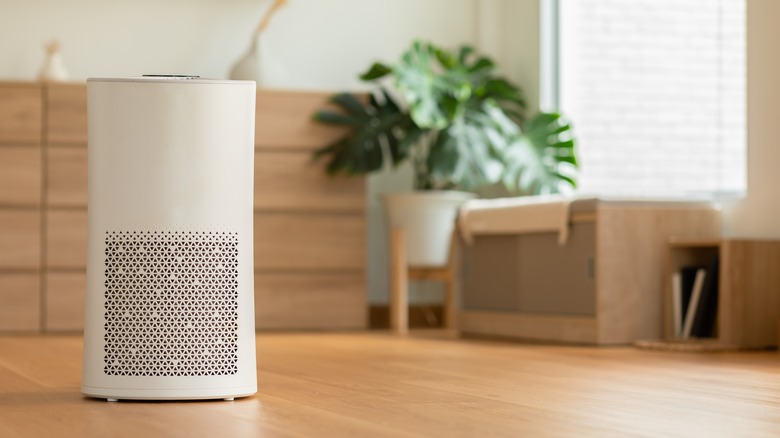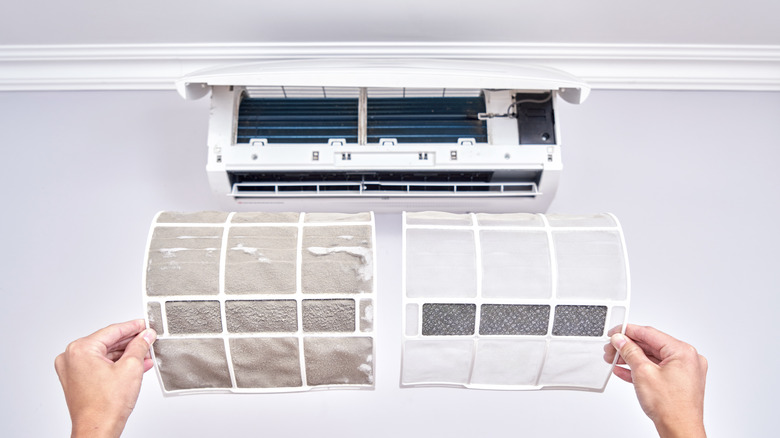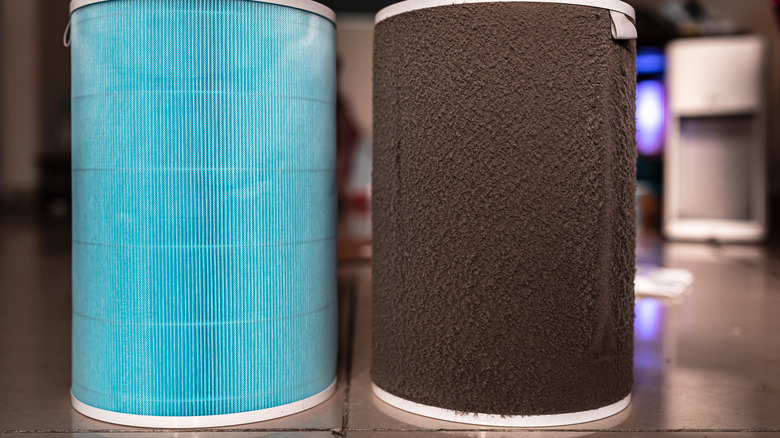Do HEPA Filters Actually Work?
Under normal circumstances, air filters are not something we spend too much time thinking about, likely because we've never really had to. After all, most of us have air conditioning units that can use a variety of filters, which we assume keeps our air clean. And they do — up to a point. Run-of-the-mill AC filters can catch many things, like dust, mold, fungal spores, and pet dander. But not all are made the same way, and how good they are at their job depends entirely on the product you buy. To understand how hard and efficiently your filters work in your home, be sure to check (and understand) your product's MERV rating.
While dismissing MERV ratings as a marketing ploy might be tempting, you shouldn't. The American Society of Heating, Refrigerating, and Air Conditioning Engineers designed the rating system several decades ago so that products could be graded based on what pollutants they could remove and their degree of efficiency. MERV stands for minimum efficiency rating value and uses a scale from 1 to 20. While a product rated "MERV 1" won't block out many extremely small particles, the highest-rated options can effectively reduce the amount of bacteria, viruses, and larger airborne pollutants in your home.
HEPA filters have high MERV ratings
Filters graded between MERV 1 to 4 are most often found in window air conditioning units, while those graded MERV 4 to 6 can block smaller particles like pollen, dust mites, carpet fibers, and cockroach droppings. Models that sit between a MERV 8 and 13 rating can clean the air of debris such as humidifier, lead, and coal dust — airborne particles that could trigger respiratory problems like asthma and allergies.
By the time you get to MERV 14 to 20, you're looking at products that can block incredibly tiny particles from face powder to COVID-19 particles, which brings us to HEPA or "high-efficiency particulate air" filters. These are considered the industry standard because they can trap particles as small as 0.3 microns. For context, sea salt is 0.5 microns.
HEPA filters might sound like a recent invention, but they have been around for quite a while. They date back to the Second World War when scientists began working on the atomic bomb and needed to find a way to clear the air of radioactive elements. The design was based on the gas masks used by soldiers to protect themselves from chemical attacks. Who wouldn't want such robust protection from pollutants in their home?
HEPA filters are commonly used in commercial spaces
At the height of the COVID-19 pandemic, doctors and scientists began looking for ways to mitigate the spread of the virus. They then discovered that HEPA filters were incredibly effective at cleaning the air of coronavirus particles that are shed when people talk, cough, or breathe. While we may not see them very much in private homes, HEPA filters are actually quite commonly used in semiconductor plants, pharmaceutical facilities, and other commercial spaces; they can also be found in hospitals for obvious reasons.
Decades of scientific use and research have shown HEPA filters to be effective, but as Filter King points out, they may not be what you want for your home since their high MERV rating can cause stress to your air conditioning system. But if you need one to keep allergies and virus particles at bay, you might want to pick a portable, standalone purifier, which is also proven effective at cleaning the air where and when you need it to.


